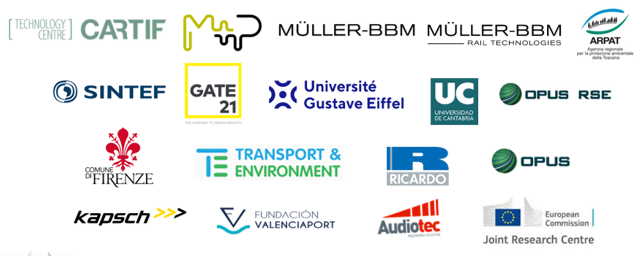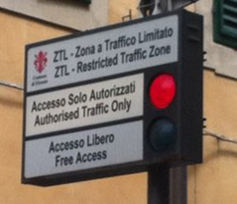
Cleaner and quieter vehicles in the Low-Emission Zones of cities thanks to the NEMO project
M+P is part of the consortium working on the NEMO project for cleaner and quieter vehicles in Low-Emission Zones (LEZ) of cities. NEMO stands for “Noise and Emissions MOnitoring and radical mitigation”; the project is funded by the EU through the “Horizon 2020 research and innovation programme”. The consortium consists of 18 organisations, ranging from research centres and universities, to developers of software and measuring equipment. The co-operating parties come from Spain, France, Germany, Italy, Norway, Spain, Sweden, Denmark, Belgium, Austria and the Netherlands.

Remote sensing system
As part of the project, an innovative measuring system is being developed that measures exhaust gas emissions and noise of individual vehicles. The system is integrated into existing infrastructure and can be placed, for example, at the border of the LEZ. The special feature of this system is that registration of traffic is done by the “remote sensing” of random vehicles passing by, measuring them from a distance. The result of the measurement is fed directly back to the driver of the vehicle so they can see whether they can access the LEZ in their vehicle. In addition to detecting and informing unwanted high-emitters, collecting this data has another purpose. The system can be used by governments to monitor exhaust gas emissions and vehicle noise, as well as to check the effectiveness of the LEZ as it is currently set up. M+P will work with sister company, Müller-BBM, to develop the hardware and software for the sound recordings.

Nautilus
A unique data platform is being developed for the assessment of the individual vehicle emissions. Data flows concerning (anonymous) vehicle data, exhaust emissions, noise and meteorological conditions are processed into an assessment of the vehicle and communicated directly with the driver or the vehicle. Within the consortium, M+P is developing the software infrastructure required for this, called NAUTILUS (Nemo Autonomous Traffic and Infrastructure emission evaLUation System).
Measures
In addition to developing the remote sensing measurement system, the project is also working on measures that can limit emissions of both noise and exhaust gases. Existing measures against traffic noise are combined with measures that improve the air quality in the city and offer a solution for the run off of tyre and road surface wear. For example, air-purifying cassettes are being tested on sound screens, and materials are being developed that remove NOx from the air using a catalytic process.
Research is also being carried out to see if the rolling resistance of noise-reducing road surfaces can be made lower, and whether the cavities in porous road surfaces can help absorb micro-plastics that are released as a result of car tyre wear. M+P will make an important substantive contribution to the latter subject in particular.
Pilots
The measurement systems and measures against emissions from road and rail traffic will be tested in various cities in Europe. Ultimately, the end result of the project will be demonstrated in various pilots. The pilots will take place in the LEZs of Madrid and Florence, in the port area of Valencia, and along the railway in the Netherlands. The NEMO project will be implemented over the next three years, and the final result is expected in April 2023.



